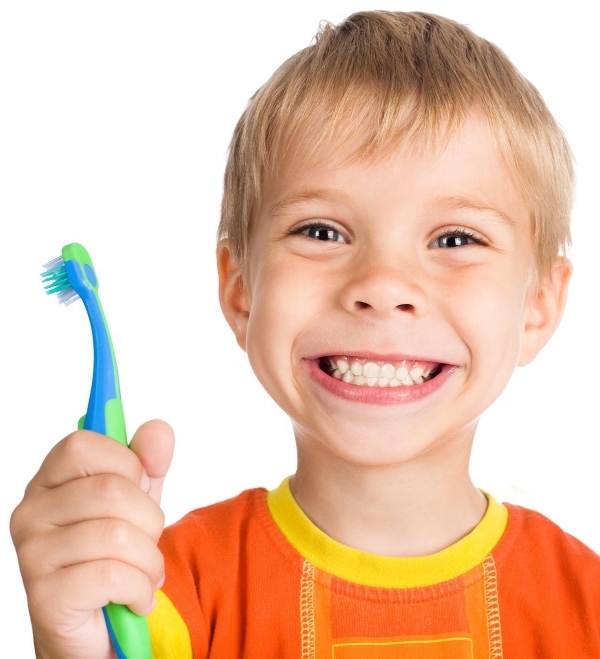

Website Design by Willow Management
pediatric
Your child's teeth begin forming before your child is even born. Baby teeth, just like permanent teeth, need to be kept clean and healthy or they can decay. We take extra care and have the knowledge necessary for treating our young patients.
We recommend that a child first visit a dentist when they are 12 months old. At this age, the dentist will check for problems and will guide parents on the best practices for helping the child maintain good oral health. Children should visit the dentist every six months, just like adults, to ensure no cavities are forming.
By age six, your child's molars and other permanent teeth are starting to come in. Just as their bodies are changing physically as they reach the pre-teen and teenage years, so are their oral health needs. As your child grows, our dentists will be there to advise what you and your child can do to ensure that your child's permanent teeth will form a beautiful and healthy smile that can last a lifetime.
At Manning Family Dental, you can enjoy comprehensive care for your whole family. Our dentists focus on preventive care, early detection of cavities and other concerns, diagnosis, and treatment. Whether your child needs a check-up, a cavity filled, or emergency treatment for a chipped or broken tooth, we're ready to help. The child's parent or legal guardian must give his or her consent before any dental care is provided for a child under 18 years of age.
We recommend that a child first visit a dentist when they are 12 months old. At this age, the dentist will check for problems and will guide parents on the best practices for helping the child maintain good oral health. Children should visit the dentist every six months, just like adults, to ensure no cavities are forming.
By age six, your child's molars and other permanent teeth are starting to come in. Just as their bodies are changing physically as they reach the pre-teen and teenage years, so are their oral health needs. As your child grows, our dentists will be there to advise what you and your child can do to ensure that your child's permanent teeth will form a beautiful and healthy smile that can last a lifetime.
At Manning Family Dental, you can enjoy comprehensive care for your whole family. Our dentists focus on preventive care, early detection of cavities and other concerns, diagnosis, and treatment. Whether your child needs a check-up, a cavity filled, or emergency treatment for a chipped or broken tooth, we're ready to help. The child's parent or legal guardian must give his or her consent before any dental care is provided for a child under 18 years of age.
frequently asked questions
Are baby teeth really that important to my child?
Those toothless smiles are adorable but yes, primary teeth (aka baby teeth) are important for many reasons. They help children speak clearly, chew naturally, and aid in forming a path for permanent teeth to follow when they are ready to erupt.
What should I use to clean my baby's teeth?
It is important to develop the habit early on of removing plaque bacteria that can lead to decay, starting at birth. For newborns, clean your baby's gums with a soft infant toothbrush or cloth and water. As soon as the teeth begin to appear, start brushing at least once a day (at bedtime) with a soft-bristled toothbrush with a small head, preferably one designed specifically for infants. Brushing twice a day is even better, especially as more teeth come in and the child's diet becomes more varied.
Should I use toothpaste with my child?
The American Dental Association recommends using fluoridated toothpaste once you start using a toothbrush. Use a smear of toothpaste to brush the teeth of a child less than 2 years of age. For youngsters 2-5 years old, dispense a pea-size amount of toothpaste, and perform or assist your child's tooth brushing. Remember that young children do not have the ability to brush their teeth effectively on their own. Make sure they spit out and not swallow excess toothpaste after brushing.
When should I schedule my child's first dental appointment?
The American Dental Association, American Academy of General Dentistry, and the American Academy of Pediatric Dentistry all recommend that your child's first dental visit should take place around 12 months of age or shortly after the eruption of the first baby tooth. This proactive approach will help us identify potential problems early on and introduce your baby to all the sights, sounds, and sensations of our office.
Don't wait until your child has a toothache or a dental emergency. This could result in your child developing a fear of the dentist, which is sometimes very hard to overcome — and we wouldn't want that to happen.
Those toothless smiles are adorable but yes, primary teeth (aka baby teeth) are important for many reasons. They help children speak clearly, chew naturally, and aid in forming a path for permanent teeth to follow when they are ready to erupt.
What should I use to clean my baby's teeth?
It is important to develop the habit early on of removing plaque bacteria that can lead to decay, starting at birth. For newborns, clean your baby's gums with a soft infant toothbrush or cloth and water. As soon as the teeth begin to appear, start brushing at least once a day (at bedtime) with a soft-bristled toothbrush with a small head, preferably one designed specifically for infants. Brushing twice a day is even better, especially as more teeth come in and the child's diet becomes more varied.
Should I use toothpaste with my child?
The American Dental Association recommends using fluoridated toothpaste once you start using a toothbrush. Use a smear of toothpaste to brush the teeth of a child less than 2 years of age. For youngsters 2-5 years old, dispense a pea-size amount of toothpaste, and perform or assist your child's tooth brushing. Remember that young children do not have the ability to brush their teeth effectively on their own. Make sure they spit out and not swallow excess toothpaste after brushing.
When should I schedule my child's first dental appointment?
The American Dental Association, American Academy of General Dentistry, and the American Academy of Pediatric Dentistry all recommend that your child's first dental visit should take place around 12 months of age or shortly after the eruption of the first baby tooth. This proactive approach will help us identify potential problems early on and introduce your baby to all the sights, sounds, and sensations of our office.
Don't wait until your child has a toothache or a dental emergency. This could result in your child developing a fear of the dentist, which is sometimes very hard to overcome — and we wouldn't want that to happen.
patient services

First Visit
Cleanings
Patient Information
Periodontal Disease
Tooth Extractions
Sedation Dentistry
Pediatric Dentistry
Cleanings
Patient Information
Periodontal Disease
Tooth Extractions
Sedation Dentistry
Pediatric Dentistry
Patient Information
First Visit
Teeth Whitening
Pediatric Dentistry
Locations
Smile Gallery
Community
Facebook
Contact
First Visit
Teeth Whitening
Pediatric Dentistry
Locations
Smile Gallery
Community
Facebook
Contact


Manning Family Dental · Dentist in Manchester, TN · All Rights Reserved

